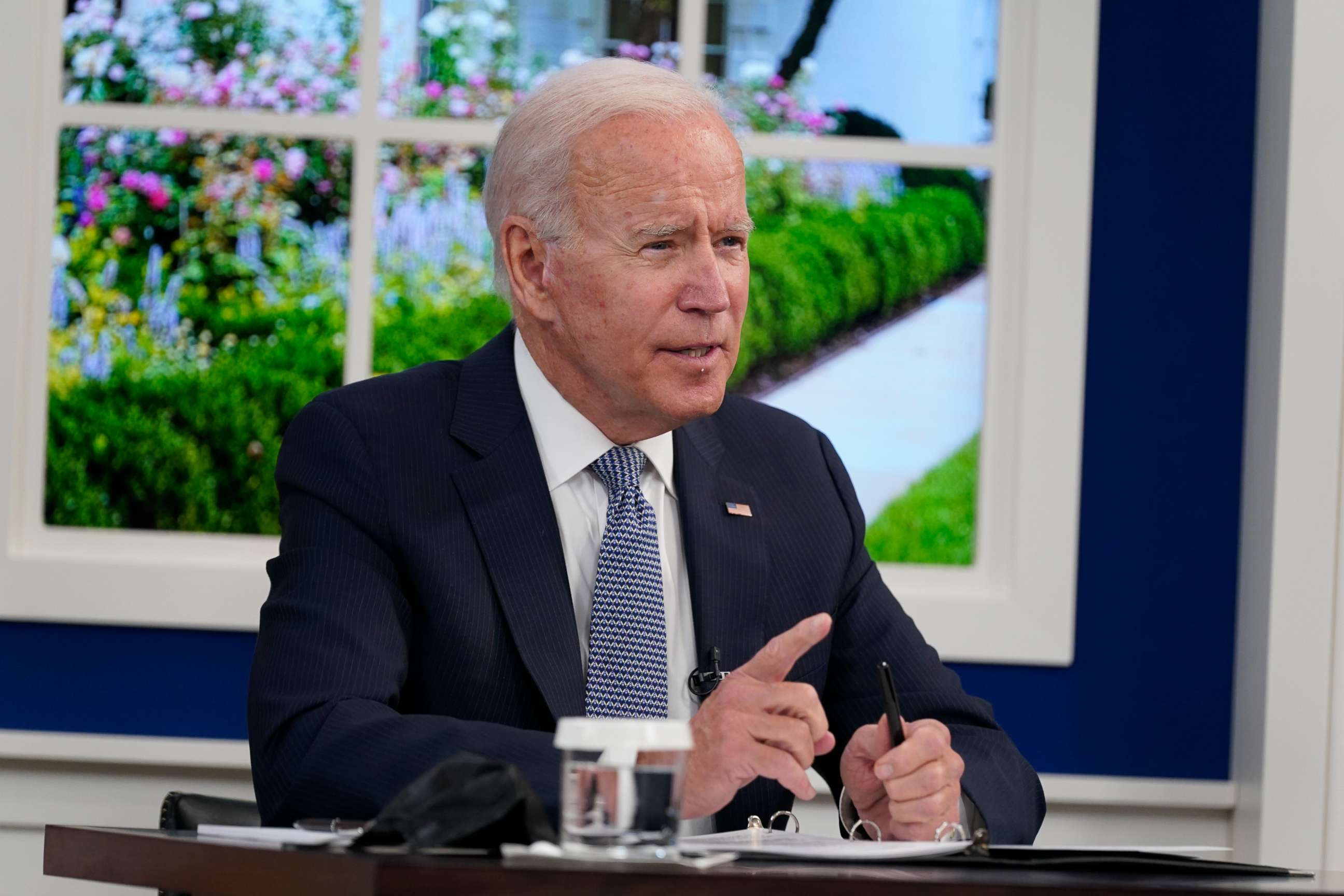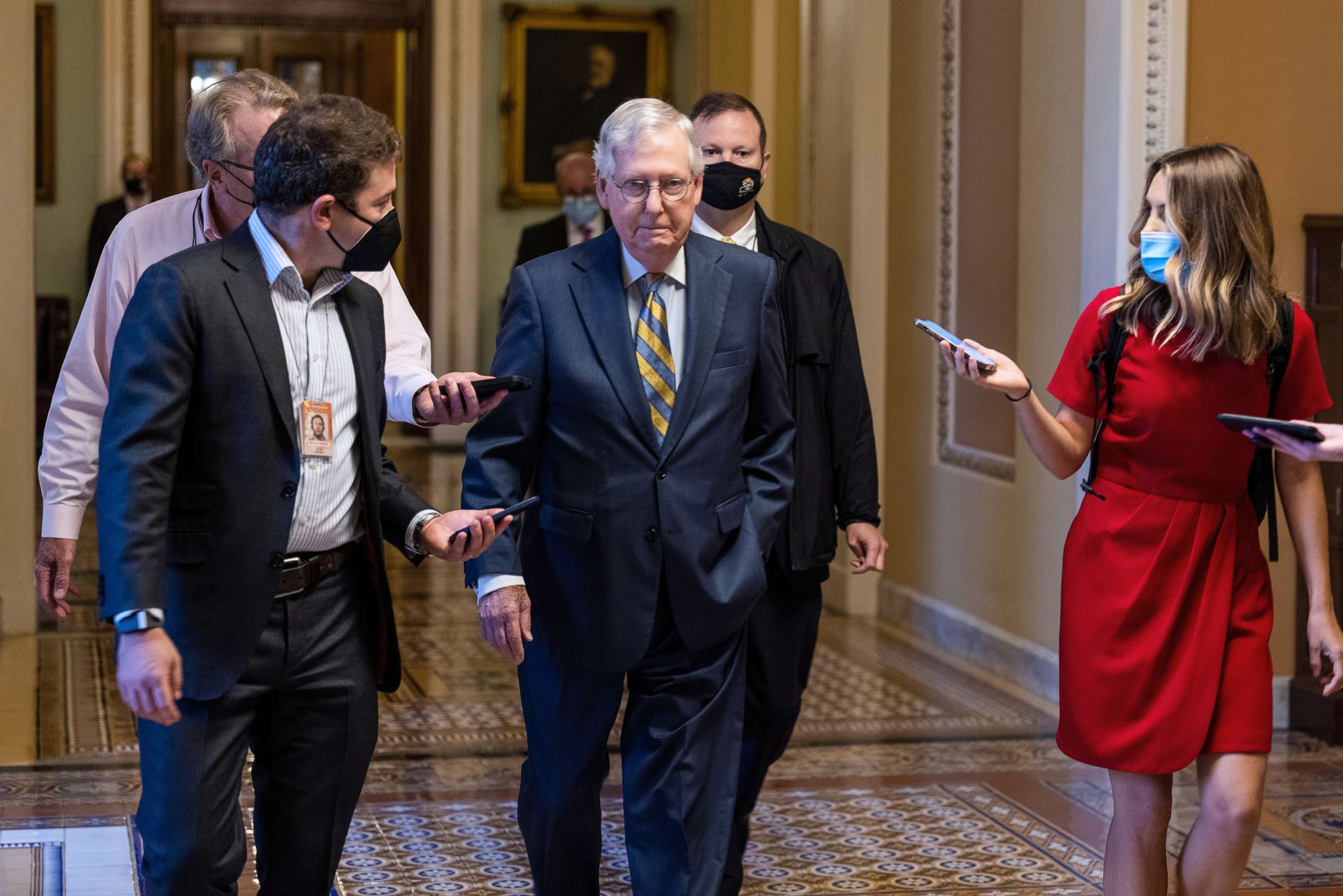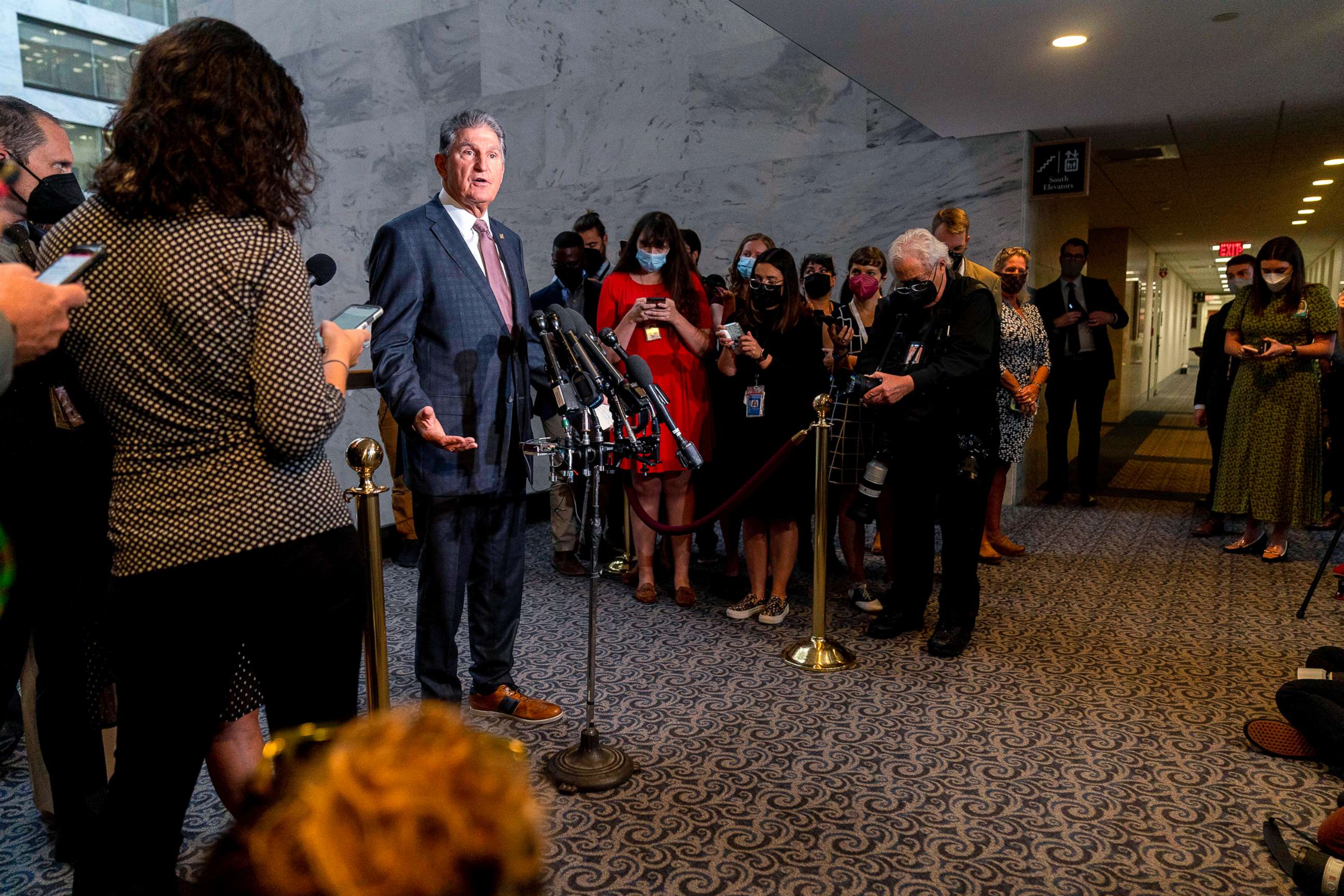Biden enlists CEOs to pressure GOP as potential US default looms
A potential U.S. default is less than two weeks away.
President Joe Biden ratcheted up pressure on Republicans Wednesday, hosting the heads of several major banks and corporations to discuss the dangers of the U.S. defaulting on its debts. That could happen in less than two weeks if Congress doesn't act, with a catastrophic impact on the economy.
"It's not right," Biden said of Republicans' ongoing refusal to vote to raise the debt ceiling. "And it's dangerous."
"The path Republicans offer would take us right to the brink and cause irreparable economic damage in my view," he added. "So let's vote, and end this mess today."
The Senate was scheduled to hold a procedural vote on lifting the debt ceiling Wednesday afternoon, which requires 60 votes to pass. Senate Minority Leader Mitch McConnell has said Republicans in the Senate will filibuster a House-passed measure that would suspend the debt limit -- and avoid a potential default -- until December 2022. At least 10 Republicans would need to join all Senate Democrats to break a GOP filibuster and allow a simple majority vote to pass the bill.
Ahead of the vote, Biden met with JPMorgan Chase CEO Jamie Dimon, Bank of America CEO Brian Moynihan, Citi CEO Jane Fraser. He acknowledged the political risk Democrats face in lifting the debt ceiling themselves, which Republicans could campaign against in the 2022 midterm elections.

"If they don't want to do the job, just get out of the way," Biden said. "We'll take the heat, we'll do it. We will do it. Let us do it. Let the Democrats vote to raise the debt limit without destruction or any further delays."
He asked participants to discuss the impacts of a default on Americans. Nasdaq CEO Adena Friedman spelled out the danger to retirement accounts.
“We have to realize that well over half of the adult Americans have money in the stock market, either directly or indirectly, and so those savings accounts, those retirement accounts, the pensions, they'll all experience a significant sharp drop in their values, which, of course, makes them feel less certain about their ability to -- to manage their lives and their savings and plan for retirement,” she said.
Treasury Secretary Janet Yellen used grave language to describe what a default would mean.
“We would likely experience a recession. Millions of jobs would be lost. And the pain would endure well past the resolution of the crisis,” she said.
“Millions are without sufficient savings to forgo an expected check. And for these households and businesses, the impact would be devastating. To take one heartbreaking example, millions of seniors who depend on Social Security for their support would have to make awful choices, such as deciding whether to pay rent or buy groceries,” she warned.
"It's already beginning to cause some damage in the economy," Citi's CEO Jane Fraser said. "It will hurt consumers. It will hurt small businesses."
"We are, simply put, playing with fire right now," she said.

“The effects would be cascading, so day one would be bad, but the cascading effects and the ensuing weeks could go anywhere from a recession, to a complete catastrophe for the global economy,” JPMorgan Chase CEO Jamie Dimon said. He added the default could tarnish America’s image on this world stage -- and Biden added the default would give credence to the argument autocracy is the superior form of government, espoused by leaders like Xi and Putin.
The president's meeting with CEOs comes a day after he expressed openness to revising the Senate rules to do away with the need for 60 votes in this instance -- instead requiring a simple majority, which Democrats have.
"I think that's a real possibility," Biden said late Tuesday, when asked if Democrats were considering that possibility.
But every Democratic senator would need to be on board with that option, and late Tuesday, Sen. Joe Manchin, D-W.Va., said he opposed invoking the so-called "nuclear option" to make an exception to the filibuster in this case. On Wednesday morning, Manchin said "nothing changes" in his position.

Instead, Republicans want Democrats to take a more politically untenable -- and procedurally cumbersome route. That would force them to choose a massive dollar amount to raise the limit to, rather than just suspending it -- tying them to that number as Republicans stand aside.
Lawmakers have suspended the debt ceiling 80 times before, including three times when Democrats joined with Republicans to do so under then-President Donald Trump.
McConnell, R-Ky., has said repeatedly that Democrats should have to hike the debt limit to cover the cost of potentially trillions in yet-passed parts of Biden's agenda, though the debt limit must be raised to cover spending that already took place under the Trump administration with unified GOP support.
In fact, nearly 98 percent of that debt was incurred before Biden took office, according to an analysis by the Associated Press.
Biden has said twice this week -- Monday and Tuesday -- that he planned to speak with McConnell. The two played key roles in dissolving another partisan fight over the debt ceiling in 2011.
The GOP opposition to suspending the debt ceiling has created a headache for Biden, who has been trying to reach a deal with Democratic members of Congress on trillions of dollars in spending on physical infrastructure, new social programs and combating climate change.
ABC News' Trish Turner and Allison Pecorin contributed to this report.




